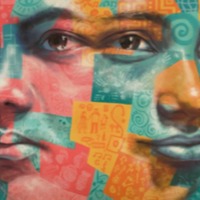
They tortured us, beat us and burned us. I called my family and told them we are in hell, we need money or they will not let us go. They would pour water inside my mouth while beating me. They would stuff cloth into my mouth while beating me with a stick and a whip.
I spent three months held in captivity there until I secured $6,000 through my family, who gathered it from relatives and friends in Eritrea and abroad. Then the smugglers took me to Khartoum. I worked there as a hotel cleaner. I spent almost six months there before I paid smugglers to take me to Libya. The trip cost me $1,600.
When I entered Libya, I was captured by Libyans wearing uniforms. They told me "We can't let you travel to the sea to cross over to Europe." They took me and the group I was travelling with to an area far away from the coast. They handed us over to a group with Sudanese and Eritrean smugglers in charge. That is when I found out we had been sold. Our new captors told us we had been sold by the Libyans and we had to pay $5,000.
I have been here for five months now. We are kept indoors 24/7 with no access to running water or daylight. I smuggled the phone in here and my family knows I am here, but they are helpless. For the majority of the people held with me, their families know nothing about them. No one knows if they are dead or alive. We are scared because we have not seen a single person from the outside since coming here. We know detainees in other containers have been in touch with Eritrean-Swedish journalist and human rights defender Meron Estefanos. You are the first one to contact us, we have had no one calling us from the outside.
Every Sunday, they tell us they will release us within two weeks, but then the time passes and nothing happens. When they first took us, they said we must pay money in order to be freed. But for weeks now they have not asked for money to release us. They are just keeping us here without any information. We don't know what is going to happen to us.
The container is made of tin. It's really cold right now, you feel it in your bones. We have a blanket each. But with the hunger, you feel the cold even more. We sleep and wake up in the same place awaiting our fate. We don't know if we will ever make it out. We have many sick people among us without any access to medicine or doctors. We don't move much because we are so weak and hungry, we just sleep. One Somali man has died. I don't see any positive end to this. We all keep our pain and fears inside and we just sleep.
The thought of returning to Eritrea is like returning to another, bigger prison. If I was returned there against my will, I would try to get out again. The moment I was told by the Sudanese and Eritrean smugglers the Libyans had sold me, my stomach turned inside out.
The shock, fear, anger and frustration made me bleed when passing urine or stools. Realising I had been sold like a slave was the worst feeling.
Narrative provided by Al Jazeera









